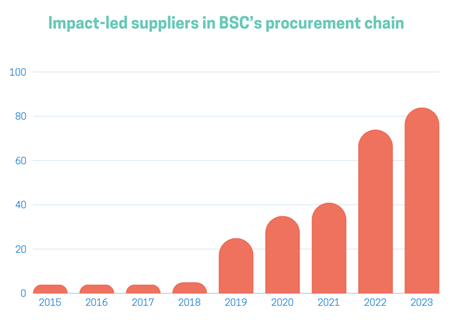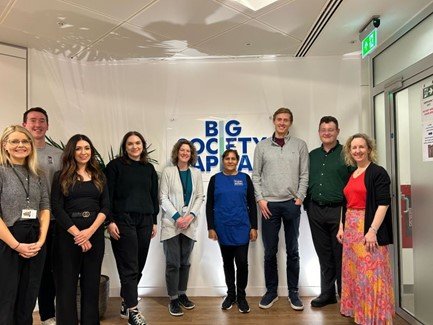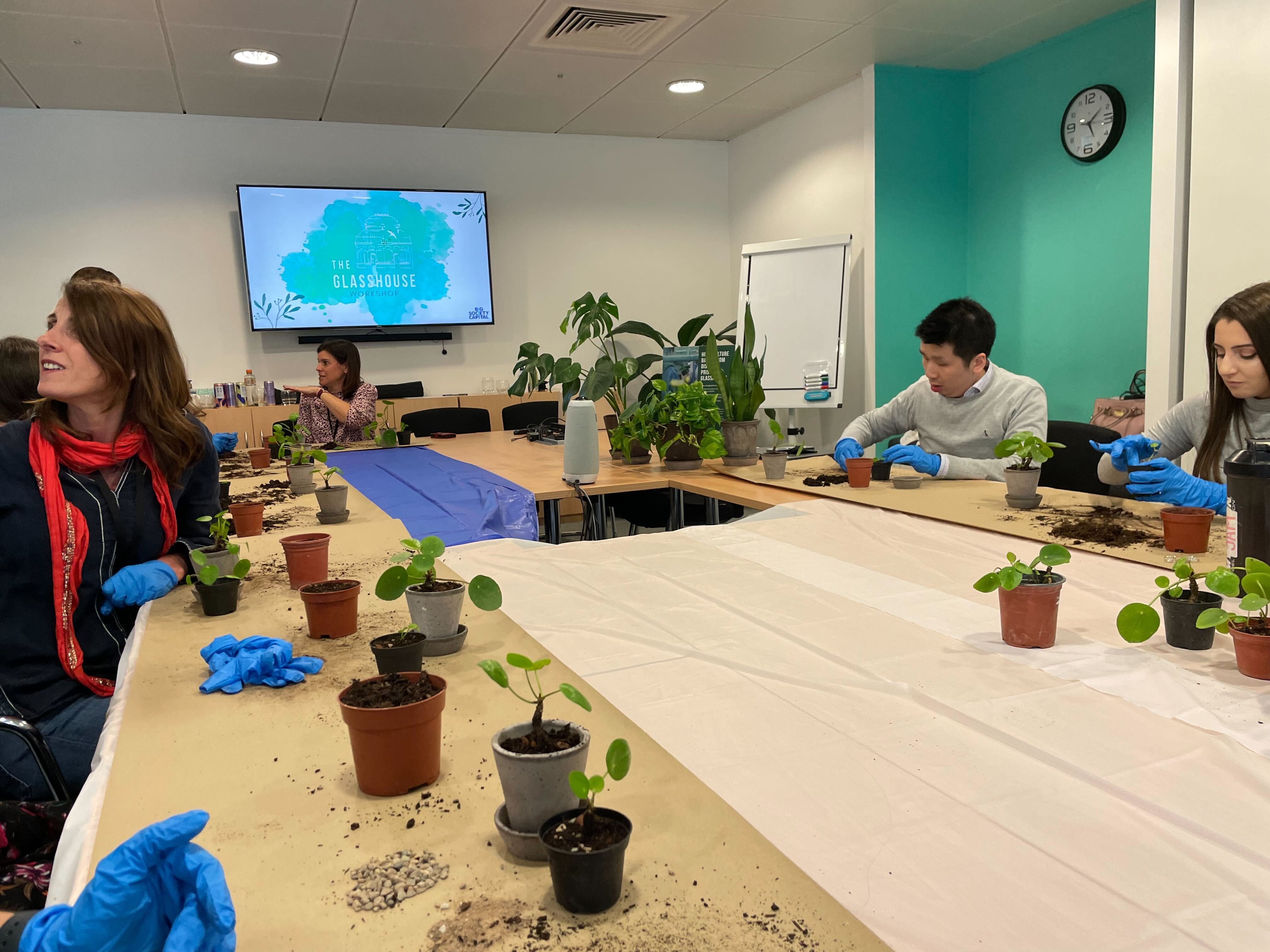Today is Social Enterprise Day and we’re pleased to have supported Social Enterpise UK to publish their new research, exploring the sector's impact across the country. The findings estimate that there are now 131,000 social enterprises across the country, representing almost one in 42 of all UK businesses.
Unlike traditional businesses, social enterprises put people and planet first, reinvesting at least half their profits to drive progress on vital missions. This innovative business model is needed now more than ever, with complex challenges facing our economy, not to mention our environment and wider society.
Reflecting on the growing number of entities across the UK and considering this year’s theme of sustainability: across money, mindset and making a difference, we’re reflecting on our own ‘buy social’ journey, with the hope of encouraging other organisations to consider purchasing their supplies from social enterprises.
Why do we ‘buy social’?
We are committed to purchasing goods and services that align with our mission and values, ensuring our buying power reflects our desire to see a fairer and more equal society. We know that for social purpose organisations to be sustainable, they need to generate income through trading.
Our journey so far
During 2015 we started tracking the number of social purpose organisations in our procurement chain, recording the figures each year in our annual report. We have strengthened our ‘buy social’ approach by joining SEUK’s Social Procurement Connect platform (a second stage of the Buy Social Corporate Challenge, aimed at smaller organisations). As a result, we have further developed an internal directory of go-to suppliers, as well as launching Responsible Procurement and Partnership Policy.
In 2023 we had grown our social purpose supplier base from 4 to 84 entities – a 2000% increase from where we started. The first 3 years of tracking showed small but steady growth. By 2019 we saw a significant progression; a 400% increase on the previous year and since then, our growth trajectory continues to build.

Growth of impact-led suppliers in BSC's procurement chain
Sector highlights
Clean for Good - this year the biggest contract value we’ve converted to ‘buy social’ was our office cleaning. Clean for Good is a social enterprise delivering cleaning services within London. The enterprise pays their staff the London Living Wage and proudly refuses to work with zero-hour contracts, a progressive movement within the UK commercial cleaning sector.

Clean for Good employee Maria, along with colleagues
The Glasshouse – supports women based in UK prisons by providing training and employment opportunities, which helps to reduce reoffending upon release. We originally sought services from The Glasshouse to install plants in our office, and now Netti continues to take care of the BSC flora with fortnightly visits.

Glasshouse hosting a planting session at BSC
Hey Girls – is a social enterprise dedicated to eradicating period poverty in the UK, operating on a buy one, donate one business model. They currently supply menstrual hygiene products for our staff.
The Pendragon Project – is a social enterprise delivering adventure projects for young people facing complex challenges, helping to build confidence, improve wellbeing and develop teamworking skills. We have partnered with the Pendragon Project on several BSC team-away days and internal events, which have not only been hugely enjoyable, but great for staff development and team building too.
CubeLynx – is a financial consultancy which employs financial modellers who are neurodiverse, particularly those who are autistic. A large untapped talent pool of financial modellers exists within the autistic community (both diagnosed and undiagnosed) and CubeLynx was created to provide those people careers and a pathway to success. Cube Lynx have supported us with some of our financial modelling work across various projects.
Learnings and challenges
Buying social is crucial for ensuring we live our values at BSC, however there are considerations to bear in mind, when incorporating social enterprises into procurement. These include:
- Some impact-led suppliers can face issues that larger, established organisations do not, including longer production times, increased cost-base and smaller geographical reach. Whilst we have endeavoured to grow our supplier directory, it has taken time, and we are still learning how we can make more swaps to entities that offer goods and services with impact.
- Less marketing budget can lead to reduced publicity of some enterprises, making it harder to discover services. However, we have seen an increased number of suppliers across different sectors in the last few years.
One of the biggest learnings is the amount of lead-in time required, however, with forward-planning it really is possible to manage a varied range of office facilities, in addition to the above enterprises.
What’s next?
We are pleased with progress to date, but we don’t want to stop here. Our ambition is to double our social spend in the next 5 years.
We will be relocating in the New Year, and a key part of our focus has been on how we can bring even more of our ‘buy social’ focus to enhance our office - from our water tap through to our internet provider, opting for sustainable impact-led providers.
To find out more about our ‘buy social’ journey and/ or to make suggestions for social enterprises who we can partner with on our procurement journey, please get in touch.